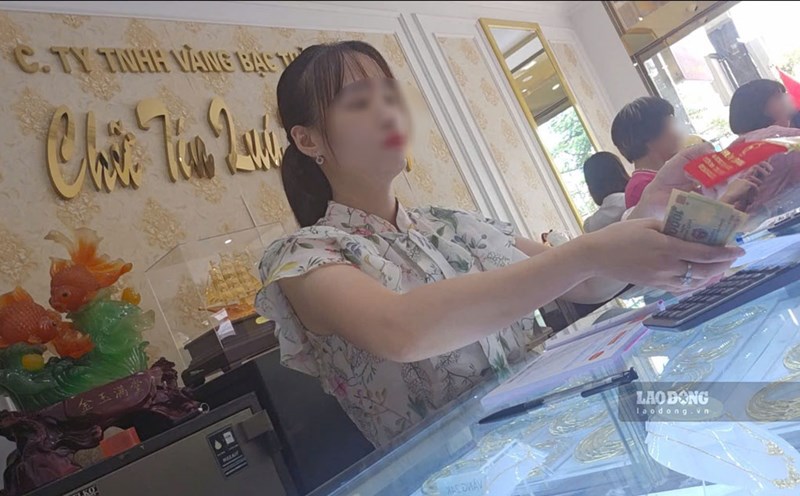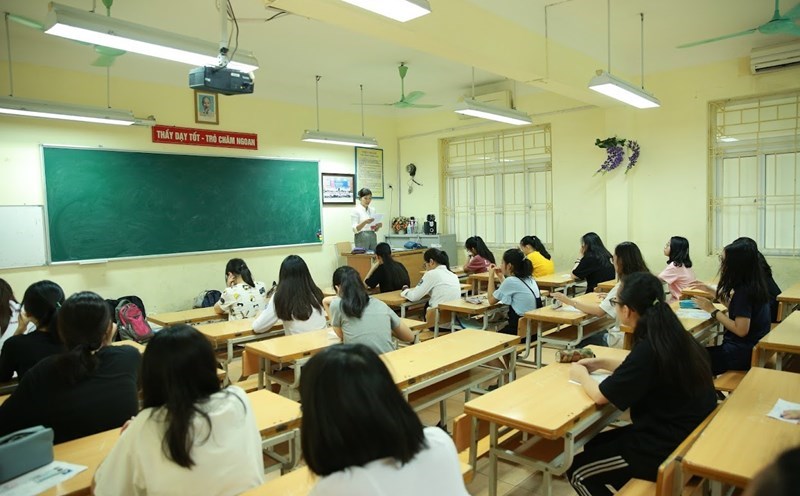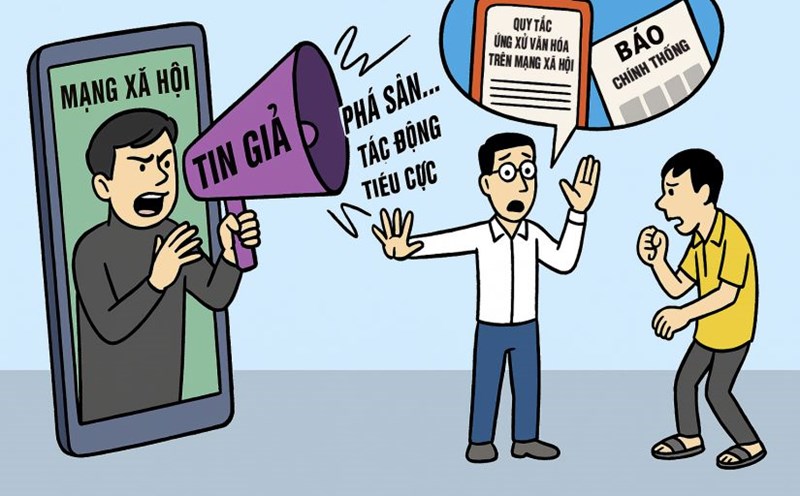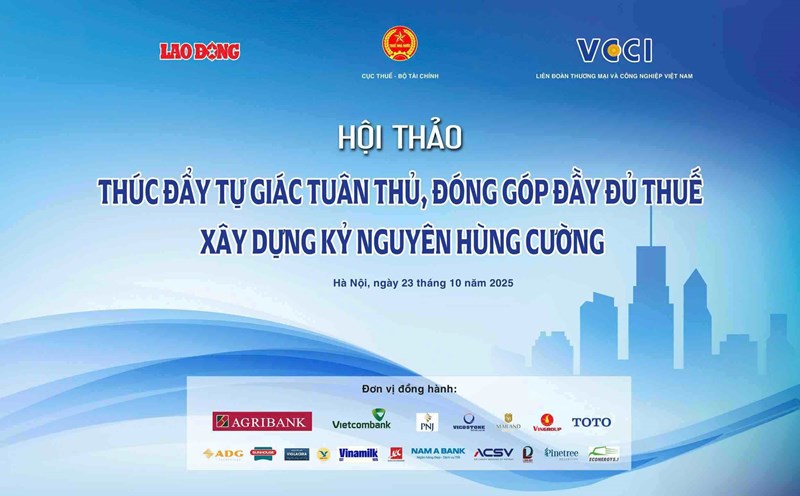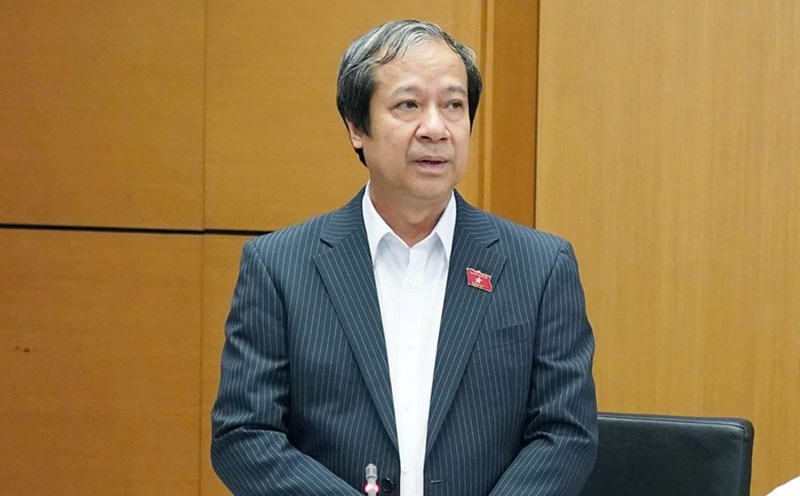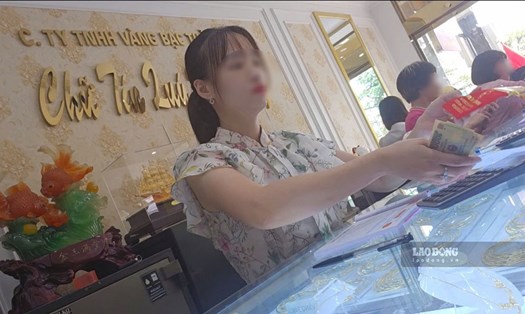On the morning of October 22, in Hanoi, the Ministry of Culture, Sports and Tourism held a workshop to collect opinions on the draft Code of Cultural Conduct in cyberspace. Alternate member of the Party Central Committee, Permanent Deputy Minister of Culture, Sports and Tourism Le Hai Binh chaired the workshop.
Completing the second draft
Speaking at the Workshop, Permanent Deputy Minister of Culture, Sports and Tourism Le Hai Binh emphasized that in the digital age, cyberspace has a profound impact on the social life of each individual.
Along with convenience and opportunities, the online environment also poses many challenges. In particular, the increase of deviant and anti-cultural behaviors on social networks is negatively affecting the formation of personality, morality and lifestyle of adolescents, causing many parents to worry.
Given that reality, establishing standards of conduct in cyberspace has become more urgent than ever.
According to Permanent Deputy Minister Le Hai Binh, in addition to the current legal system, the Code of Cultural Conduct in cyberspace, when issued, will be an important tool contributing to the formation of a healthy and civilized online environment.
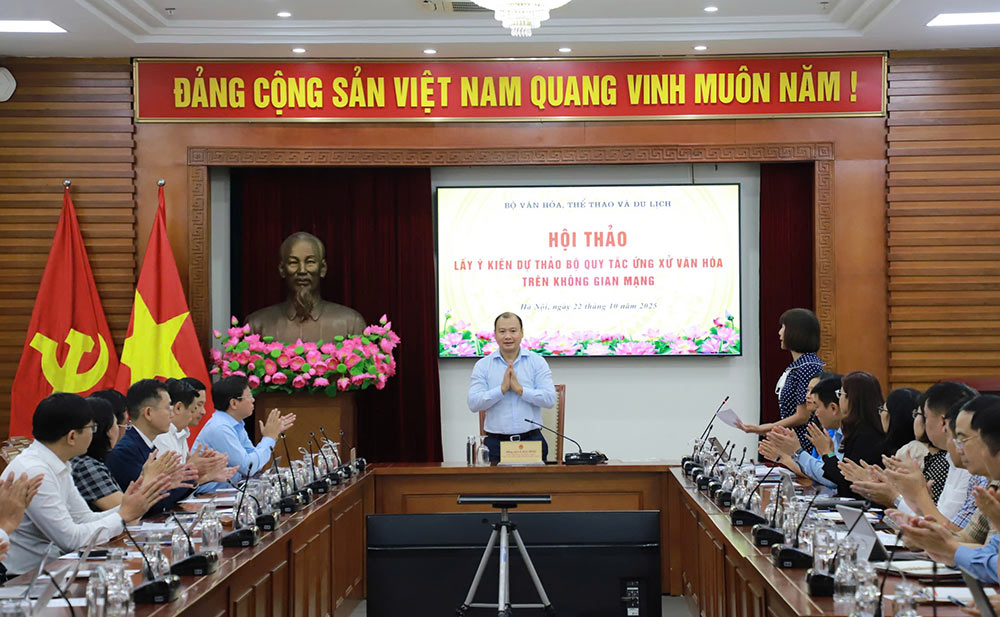
Deputy Director of the Department of Radio, Television and Electronic Information Nguyen Thi Thanh Huyen affirmed that the development and promulgation of the Code of Cultural Conduct in cyberspace is extremely necessary.
The code will be a tool to guide behavior, create positive habits, ensure the healthy development of cyberspace, contribute to preserving national cultural identity, and build Vietnamese people in the new era.
According to Ms. Nguyen Thi Thanh Huyen, during the drafting process, the Ministry sent an official dispatch to request opinions from 59 units including the Ministry of Public Security, the Ministry of Justice, the Government Office, the Hanoi Department of Culture and Sports, the Ho Chi Minh City Department of Culture and Sports...
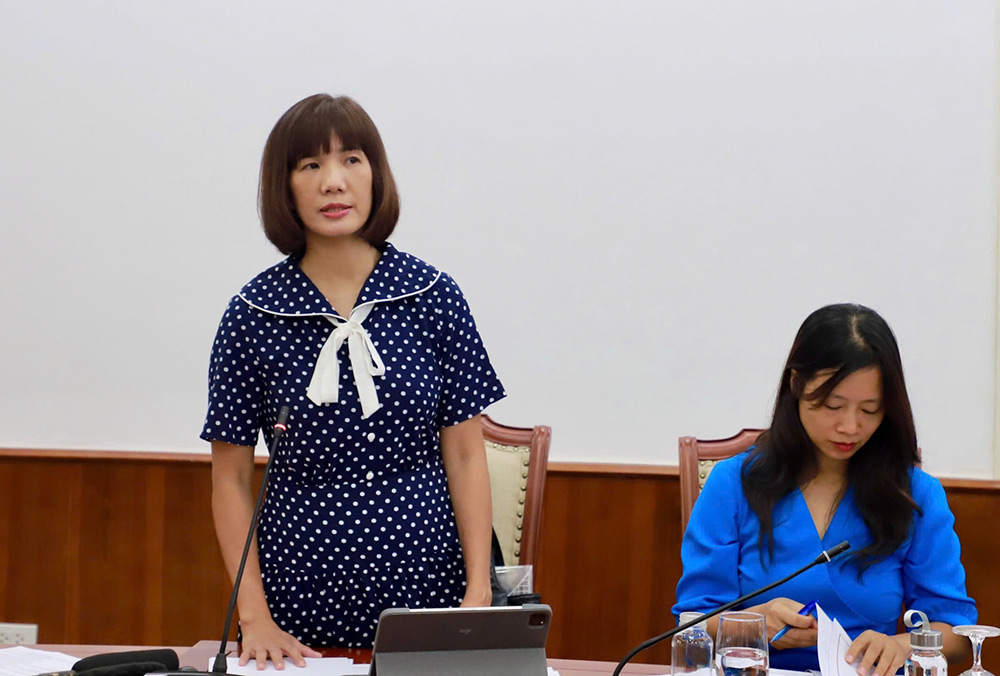
As a result, 45 units completely agreed, 14 units gave detailed comments on a number of contents such as: Separating the group of subjects regulating press agencies; media companies, advertising companies, performing arts organizations; Supplementing provisions on term interpretation; Removing regulations on rewards and discipline in the draft Code; Supplementing mechanisms and processes for scanning, detecting and handling violations of fraud or false advertising; Clarifying specific responsibilities of relevant organizations and agencies.
Ministries and branches are highly unified
The second draft of the Code of Cultural Conduct in cyberspace consists of 3 chapters and 11 articles guiding civilized behavior, building a healthy cyberspace and enhancing the responsibility of individuals and influential people in cyberspace (KOL, KOC) and businesses.
The representative of the Ministry of Public Security affirmed that the promulgation of the Code is very necessary, contributing significantly to the fight against and handling of violations, building a civilized and healthy online environment.
Notably, this is the first time that the group of subjects KOL, KOC, multi-channel network companies (MCN), multimedia media enterprises... have been recorded in a document with legal basis. From there, create a premise to mobilize these forces to participate in spreading the State's policies and guidelines.
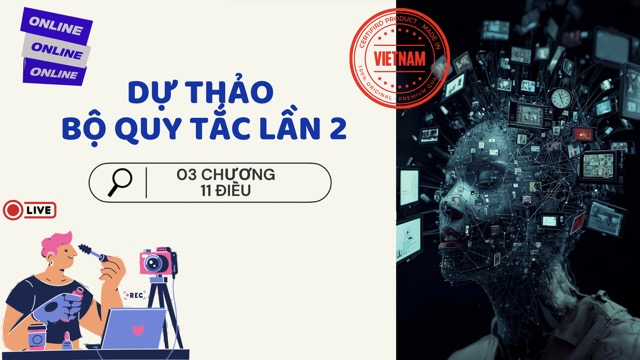
Representatives of businesses such as Yeah1, Metub, Meta and TikTok all expressed high consensus with the draft.
The units said they are ready to coordinate training, thoroughly grasp KOLs to comply with the Code, build a transparent cooperation mechanism, and at the same time propose to add specific examples in some articles in the Code for users to easily understand and implement.
Mr. Nguyen Lam Thanh, representative of TikTok Vietnam, commented that the implementation of the Code of Conduct in cyberspace needs to be flexibly implemented, in accordance with the characteristics of the digital environment.
Mr. Pham Anh Thi - Yeah1 Group, proposed that influential people should be separated into a separate group of subjects in the Code of Conduct in cyberspace, instead of being combined with individuals, because they have the ability to orient public opinion on a large scale.
From there, build a more transparent and fair mechanism for "restricting cooperation" for those with influence who violate the Code, from which businesses can proactively comply.

